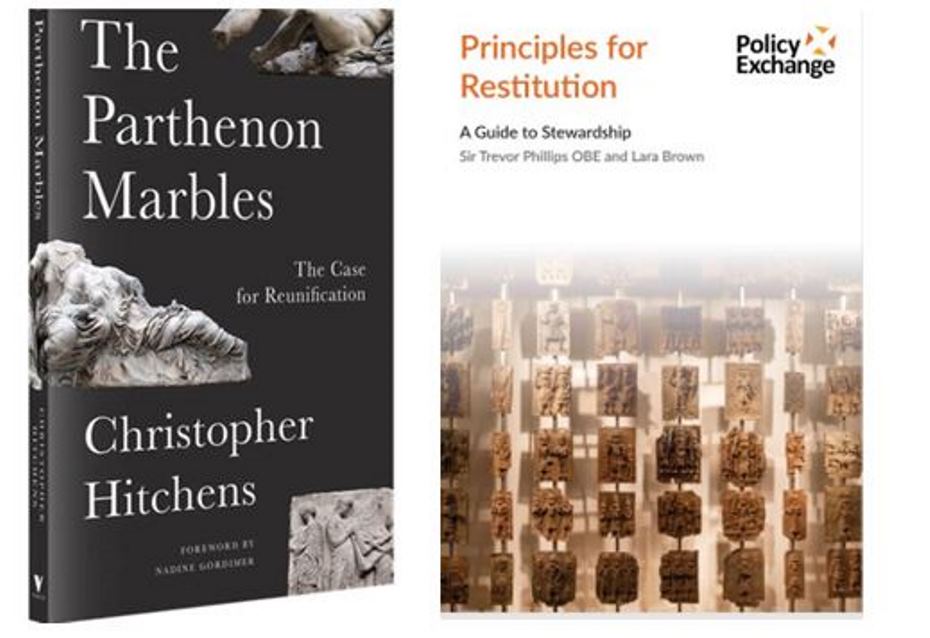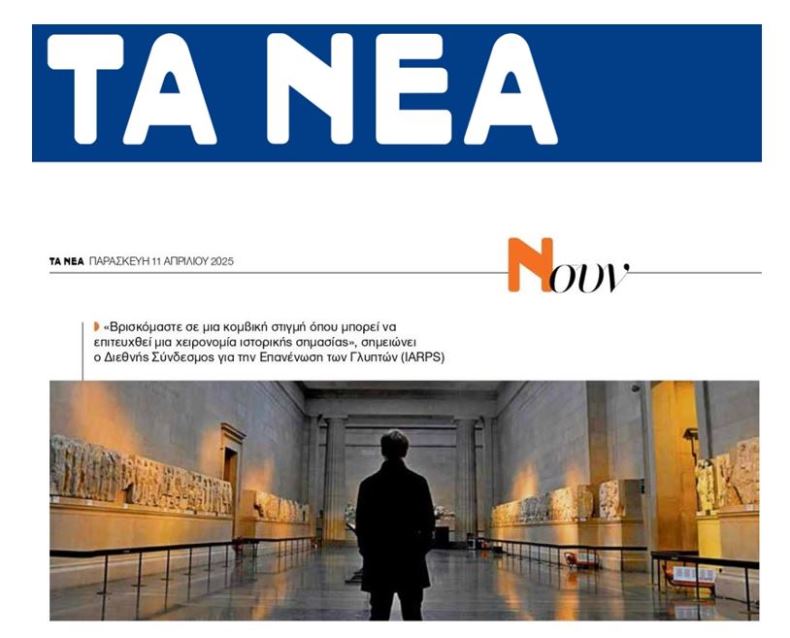Not surprising that David Cameron has rejected a call for Britain to "put right a wrong" that dates back just short of two centuries by returning the Parthenon marbles to Greece.
The British Committee for the Reunification of the Parthenon Marbles has been campaigning for the reunification of this peerless work of art since 1983. Requests for the return of the Parthenon Marbles began as early as 1835, after Greece gained independence. Other requests followed not just by Greece but by the English that could see the need to 'put right a wrong'. This included Harold Nicholson working at the Near Eastern Department of the Foreign Office when he wrote to Ramsey MacDonald in 1924 to suggest putting 'right an ancient wrong'. Many remember Melina Mercouri's passionate pleas in the early 80's when she was Minister of Culture for Greece. In 2000, Evanghelos Venizelos, pledged that when the Parthenon sculptures are returned the Greek Government will make sure that the Duveen Galleries would always host Greek antiquities on loan for exhibitions. Greece would be willing to send rare and even newly discovered antiquities, which have never been seen outside Greece.
Last but by no mean least was the request by Antonios Samaras when the new Acropolis Museum was opened two years ago in June 2009.
Eddie O'Hara, Chairman for the BCRPM and President of Marbles Reunited commented " the British Committee for the Reunification of the Parthenon Marbles wishes to stress the uniqueness of these marbles as integral structural and artistic components of a Unesco World Heritage Monument, a symbol used by Unesco itself and an iconic symbol of Greek national and ethnic identity, which have been hacked off for display in another country. There can be few if any comparable examples. Given this unique status, it is difficult to sustain the argument that the return and reunification of the Parthenon Marbles in the new Acropolis Museum, would 'open the floodgates' of demands for further restitutions. "
Eddie O'Hara, believes the British Museum has few arguments left to defend its retention of the Marbles.
"The BM Trustees shelter behind the argument that it is the law - that they are entrusted with these artefacts and cannot divest themselves of them," he says. "But the government simply needs to legislate to say 'yes, this is possible'."
David Cameron rejects call to return Parthenon marbles to Greece
PM dismisses suggestion by Liberal Democrat that collection of classical Greek marble sculptures should be returned to Athens
http://www.guardian.co.uk
Hélène Mulholland, political reporter
Andrew George, the Liberal Democrat MP for St Ives, reopened the issue of the marble sculptures, currently in the British Museum, when he incorporated the Greek financial crisis in a Commons question.
George told Cameron at prime minister's questions that Britain could do its bit to help Greece by returning the sculptures to Athens.
He made the suggestion after the prime minister reiterated his belief that the European financial mechanism should be used to bail Greece out of its financial problems.
George told Cameron: "Whilst of course we should not be making a unilateral contribution to the Greek bailout, does the prime minister not agree that we have something which would help regenerate the Greek economy and put right a 200-year wrong – and that is to give the marbles back".
Cameron said he had no intention of allowing Britain to "lose its marbles". He told MPs: "I'm afraid I don't agree ... the short answer is that we're not going to lose them."
http://www.britishmuseum.org/





Comments powered by CComment